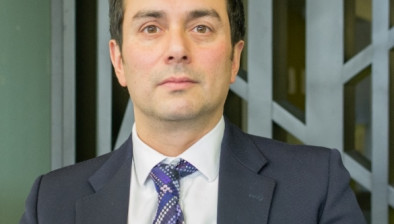Court of Appeal: 18-year sentence upheld for man’s ‘harrowing and exceptional’ abuse of daughter

The Court of Appeal has upheld an 18-year sentence imposed on a man who committed sexual assaults of “exceptional depravity” on his daughter. The accused was charged with 92 counts of various sexual offences which occurred between the ages of three and 15.

About this case:
- Citation:[2022] IECA 144
- Judgment:
- Court:Court of Appeal
- Judge:Ms Justice Aileen Donnelly
In an ex tempore ruling, Ms Justice Aileen Donnelly held that the sentencing judge did not err in principle by identifying a headline sentence of life imprisonment or by ruling that certain convictions would run consecutively. Further, the court rejected that the sentence was unduly harsh having regard to the short life expectancy of the accused.
Background
In May 2015, the victim contacted gardaí. She complained that between 1988 and 2000, she had been routinely sexually abused by her father. She provided a 110-page written statement of the abuse to gardaí. The abuse began as sexual assault but escalated to rape under section 4 of the Criminal Law (Rape) (Amendment) Act 1990.
In total, the father was charged with 92 counts of sexual assault and rape of his daughter. At the time that the father was interviewed, he was already in custody for a sexual offence against his niece. He received a sentence in February 2016 of five years’ imprisonment with the final two years suspended and backdated to September 2015.
Subsequently, the father was also under investigation for offences against his other daughters and a family friend. The man had 73 previous sexual convictions excluding the offences in this case. In February 2018, the man received an eight-year sentence for these offences.
In the present case, the man admitted to the offending and it was indicated to the DPP at a very early stage that he would be pleading guilty to the charges. The matter proceeded to sentencing with the daughter giving evidence through a victim impact statement. The daughter said that offending had a serious impact on her life, stating: “Dad, you stripped me of every human right, my worth, my privacy, my energy, my time, my confidence, my innocence, my childhood, my education, my teenage years, a normal life.”
The man’s plea in mitigation focused on the early guilty plea which was said to spare the victim from trial and saved valuable court time and expense. Further, it was noted that he never sought bail and the prosecution always knew that he would plead guilty.
Additionally, the man suffered from Wilson’s disease and had a liver transplant in 2009. As such, he had a significantly reduced life expectancy and it was argued that this should lead to a lesser sentence. It was said that he was an ill man who was assessed at a low risk of reoffending.
The sentencing judge stated that a proportionate sentence to be imposed on an accused having regard to the totality principle and consecutive sentencing. The court outlined the aggravating factors in the case which were not disputed by the accused. These factors included the severe effect of the abuse, the breach of trust and the length of time that the abuse persisted. The court noted that some of these offences were contemporaneous to a certain extent.
The judge identified a headline sentence of life imprisonment and held that the convictions warranted an element of consecutive sentences. As such, the court variously gave sentences of 10, five and three years for the convictions. Many of the sentences were to run concurrently, but certain sentences were to run consecutively and resulted in an overall sentence of 18 years.
Court of Appeal
In appealing the decision, the accused argued that the sentence was excessive and disproportionate having regard to the mitigating factors in the case. In particular, it was argued that insufficient weight was given to the early guilty plea and the medical condition of the accused. Two of his siblings had already died from Wilson’s disease and the accused had been diagnosed with significant psychiatric issues.
In response, the DPP submitted that very serious cases can attract sentences up to life imprisonment and this case fell into that category (DPP v. FE [2019] IESC 85).
Ms Justice Donnelly held that the judge was “quite entitled” to nominate a headline sentence of life imprisonment. The headline sentence was identified in a context of serious abuse against the daughter and, further, that offending had occurred against five other children. The abuse was “harrowing and exceptional in the length, intensity and depravity” of the case.
Even where a plea of guilty was entered, a life sentence may be imposed. However, this was reserved for exceptional situations. The mitigating factors were clearly taken into account by the sentencing judge in his assessment of the case. Further, the court noted that the man continued to abuse children despite having a liver transplant.
The court held that the 18-year sentence was reasonably open to the judge and that there was no error in principle in the sentence. However, the court was concerned that certain evidence placed before the judge had tended to suggest that the man had received a fully suspended sentence for the abuse of his niece, when he had in fact received a three-year custodial sentence.
This confusion potentially meant that the judge thought that he was backdating the sentence to when the man went into custody for the first time. Accordingly, the court decided to remedy the confusion by backdating the present sentence to October 2016 when the accused confessed to the offences.
Conclusion
The appeal was dismissed.
The People (at the suit of the Director of Public Prosecutions) v. J.M. [2022] IECA 144










